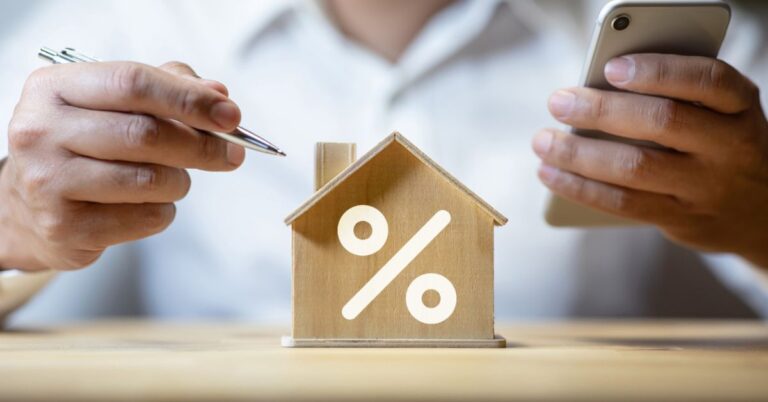Homeownership brings with it an array of perks, offering the dual advantages of stability and growth. For homeowners, merely having a roof overhead is only one facet of the equation.
Imagine that securing a second mortgage not only guarantees you a place to call home but also empowers you to leverage that very residence as collateral for a favorable loan.
It’s a strategic move that transforms your home from a mere dwelling into a financial asset, opening up new avenues for financial flexibility and opportunities.
Be it renovating your living space, funding your child’s education, or navigating unexpected financial twists. It’s a financial maneuver that adds a layer of dynamism to the conventional notion of homeownership.
Here in this article, get ready to explore the terrain where homeownership meets financial flexibility, and where your home becomes not just a haven but a strategic asset in your financial portfolio.
What is a Second Mortgages?
A second mortgage is a secured loan that uses the equity in a property as collateral. It’s a financial arrangement where a homeowner borrows against the value of their home, in addition to the primary mortgage.
Unlike the primary mortgage used to purchase the home, a second mortgage allows homeowners to access cash or credit without selling their property.
This additional loan is commonly used for various purposes such as home improvements, debt consolidation, education expenses, or other significant financial needs.
How Does a Second Mortgage Work?
A second mortgage leverages the equity that an asset holds, here, it is your home. Here’s a step-by-step breakdown of how this works-
To secure a Second Mortgage, the initial step involves having your home assessed by the bank. To facilitate this process, it’s advisable to engage the services of a seasoned mortgage broker, such as Max Mortgages. Their expertise ensures a comprehensive evaluation, paving the way for a smooth and informed Second Mortgage application.
Now, based on your requirements an assessment will be made and your equity will be evaluated followed by applying for the loan with the best suitable lender.
You’ll be notified about the loan terms, interest rate, and repayment schedule mentioned in your agreement. Your profile will be evaluated and once approved, you’ll receive the funds in your bank account.
Requirements for Applying for a Second Mortgage
To be eligible for a second mortgage, you need to fulfill the following criteria:
- Possess a minimum of 15 to 20% ownership of the home.
- Maintain a remaining balance on your existing mortgage that is below 85% of the home’s current value.
- Maintain a credit score of 600 or higher (750+ recommended).
What are the Pros and Cons of Getting a Second Mortgage?
Deciding to secure a second mortgage is important, and to navigate this choice effectively, it’s essential to grasp the advantages and drawbacks involved. Here are the pros and cons of getting a second mortgage:
Pros:
- One of the primary advantages is the ability to access a substantial amount of money, which can be used for various purposes such as home improvements, debt consolidation, or major expenses.
- Second mortgages often come with lower interest rates compared to other forms of borrowing, such as personal loans or credit cards, making them a cost-effective option.
- The interest paid on a second mortgage may be tax-deductible, providing potential financial benefits.
- The funds obtained through a second mortgage can be used for a wide range of purposes, giving borrowers flexibility in meeting their financial needs.
Cons:
- If you fail to meet the repayment terms, the lender has the right to take possession of your home.
- Taking on a second mortgage means adding another layer of debt. This can strain your financial situation if not managed carefully.
- Acquiring a second mortgage involves upfront costs such as appraisal fees, and application fees.
- The value of your home may fluctuate due to market conditions. If the market experiences a downturn, you could end up owing more than your home is worth.
- While obtaining a second mortgage can positively impact your credit score through responsible repayment, failure to meet the terms can have a detrimental effect.
Types of Second Mortgages
There are two primary second mortgage types which are as follows-
Home Equity Loan:
A Home Equity loan is a mortgage loan that involves borrowing a lump sum of money at a fixed interest rate. You’ll have to make fixed monthly EMI payments towards the mortgage loan for a fixed period.
Home Equity Line of Credit (HELOC):
A HELOC is a revolving line of credit where the borrower is approved for a certain credit limit. It operates similarly to a credit card, allowing the borrower to withdraw funds as needed. The repayment structure is more flexible. Borrowers can choose to pay interest only or make additional payments towards the principal during the draw period.
What’s the Difference Between a Second Mortgage and a Refinance?
A second mortgage and a refinance are both financial strategies that involve leveraging the equity in your home, but they serve different purposes. Here’s a breakdown of the key differences between the two:
| Second Mortgage | Refinancing |
| A second mortgage is an additional loan taken on a property that already has a primary mortgage. It allows homeowners to access the equity they’ve built up in their homes. | Refinancing involves replacing an existing mortgage with a new one. The new mortgage may have different terms, such as a lower interest rate, extended repayment period, or a change in loan type. |
| It can take the form of a home equity loan or a home equity line of credit (HELOC), each with its terms and conditions. | The refinanced mortgage pays off the existing mortgage, creating a single, new loan used for debt consolidation. |
| Typically used for specific financial needs, such as home renovations, education expenses, or debt consolidation. | It is often done to secure a lower interest rate, reduce monthly payments, or change the terms of the mortgage. |
| Involves separate payments from the primary mortgage, with its interest rate and repayment terms. | Involves a single monthly payment based on the new terms of the refinanced mortgage. |
| Failure to repay a second mortgage can lead to foreclosure on the property. | Failure to repay can lead to your property being taken over by the bank. |
Conclusion
A second mortgage provides access to additional funds while keeping the original mortgage intact. The decision to pursue a second mortgage is a significant financial choice that requires careful consideration of individual circumstances and goals.
Whether opting for a lump sum through a home equity loan or the flexibility of a home equity line of credit (HELOC), the potential benefits, and risks should be weighed with precision.
As with any financial decision, it is recommended to seek professional advice and thoroughly evaluate the potential impact on your overall financial landscape.
By navigating the terrain of second mortgages with a clear understanding of the pros, cons, and distinctions, homeowners can make informed choices that align with their specific needs and aspirations.

Leena Sohal, a Principal Broker, brings over 20 years of mortgage industry experience to her role as a licensed mortgage broker for the past 15 years. Starting her career with industry giants TD and CIBC, Leena established a foundation based on integrity and professionalism. As the driving force behind Max Mortgages, she is dedicated to simplifying the mortgage process for clients, offering personalized service in the ever-changing housing market.
Under her leadership, Max Mortgages, a local independent business in the Greater Toronto Area, has earned commendations for exceptional customer service, embodying a commitment to genuine assistance and lasting client relationships.
FSRA Lic. # M09000197




